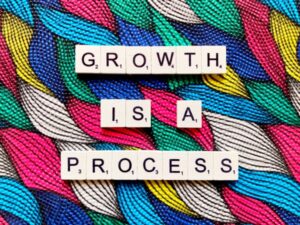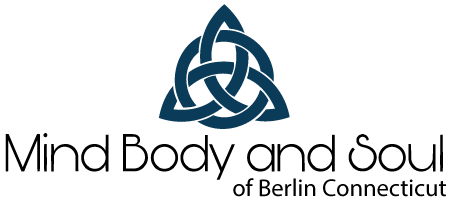Is Counseling/Therapy for me?
 Therapy, at it’s simplest, provides people with the tools and support they need to navigate challenges in life. That could apply to individuals or any group of people, like couples or family.
Therapy, at it’s simplest, provides people with the tools and support they need to navigate challenges in life. That could apply to individuals or any group of people, like couples or family.
Step 1 is really about wanting help to get from where you are to where you want to be, or at times feeling so lost and needing help to find direction and clarity.
Step 2 is finding a therapist you click with; someone that you can talk to easily, trust, and have the ability to dive deep into topics with. It’s OK to try a few people to talk to, and continue with whoever seems to be your best fit. Therapists have training and varied techniques in their practice, but also personal experience and qualities that make them unique and potentially better suited to help you.
Step 3 Keep at it. Therapy can be a slow process, so it’s important to understand that going into it to avoid becoming discouraged. Some days therapy can be better and more productive than others, but even the small steps early make the big ones much more manageable to reach later.
It’s important to remember that therapy is a safe and confidential space where individuals can explore their thoughts and emotions without fear of judgment, or where families and/or couples can have a comfortable place to discuss difficult topics while having guidance to stay with and explore topics that are important to those involved.
Initial Inquiry
Couples Therapy
Couples therapy, also known as marriage counseling, can be an effective way for couples to work through their issues and improve their relationship. While it can be difficult to take the step of seeking therapy, the benefits can be significant. A trained therapist can provide a safe space for couples to communicate openly and honestly, helping them to identify and address underlying issues that may be contributing to their problems. Through therapy, couples can learn new ways to communicate, strengthen their emotional connection, and rebuild trust.
In addition to providing a safe and supportive environment for communication, couples therapy can also offer valuable tools and techniques for improving relationships. A skilled therapist can help couples develop new skills for managing conflict, building intimacy, and addressing challenges in a healthy and productive way. Couples therapy can also help couples to gain a deeper understanding of each other’s needs and perspectives, which can foster empathy and compassion. Ultimately, couples therapy can help couples to heal and grow, both individually and as a couple, and to build a stronger, more fulfilling relationship.

Family Therapy

Family therapy can be a highly effective way to improve family relationships, resolve conflicts, and promote emotional well-being. By working with a trained therapist, families can learn new communication skills, develop a deeper understanding of each other’s needs and perspectives, and address underlying issues that may be contributing to their problems. Family therapy can help families to strengthen their emotional bonds, build resilience, and overcome challenges together.
One of the primary benefits of family therapy is that it can help to identify and address patterns of behavior that may be contributing to conflict or dysfunction within the family. By examining these patterns and working together to develop new ways of interacting, families can improve their communication and strengthen their relationships. Family therapy can also be beneficial for families facing a wide range of challenges, including divorce, addiction, and mental illness. By providing a safe and supportive environment for open communication and problem-solving, family therapy can help families to work through difficult issues and build a brighter future together.
Individual & Child Therapy

Individual therapy, also known as talk therapy, can provide a range of benefits for individuals struggling with a variety of mental health issues. Through individual therapy, individuals can explore their thoughts, emotions, and behaviors in a safe and supportive environment. Therapy can help individuals to develop new coping skills, build resilience, and gain a deeper understanding of themselves and their challenges. With the help of a skilled therapist, individuals can work through difficult issues, set achievable goals, and build a brighter future.
For children, individual therapy can be especially beneficial. Children often experience unique challenges that can impact their emotional well-being and development. Therapy can help children to express their thoughts and feelings, learn new coping skills, and develop positive behaviors. By working with a trained therapist, children can learn how to manage anxiety, depression, and other mental health issues, build self-esteem, and strengthen their relationships with others. Individual therapy can also be helpful for children who have experienced trauma or other difficult life events, providing a safe and supportive space for healing and growth. Ultimately, individual therapy can help children to develop the skills and resilience they need to thrive in life.
Recent Posts on Therapy
Fear After Loss
Losing someone close to us can be a devastating and life-changing experience. It's not uncommon for individuals to experience intense emotions and feelings of grief, sadness, and loneliness following a loss. While therapy may seem daunting, there are both fears and benefits to consider when seeking support after the loss of someone close.
10 Reasons Family Therapy Might Benefit Your Family
Family therapy may be beneficial to consider for many reasons, some more obvious than others. Review the top 10 reasons.
Continuing the Struggle
Delaying therapy only prolongs the time you spend struggling with the challenges you face. It's understandable to feel hesitant or unsure about therapy, but taking the step to seek support can lead to positive change and improve your overall well-being. Waiting until your problems become more severe can make them harder to overcome, and may cause you to miss out on valuable opportunities for personal growth and development. Remember, seeking therapy is a sign of strength, not weakness, and taking action towards your mental health is a vital step towards living a fulfilling life.








